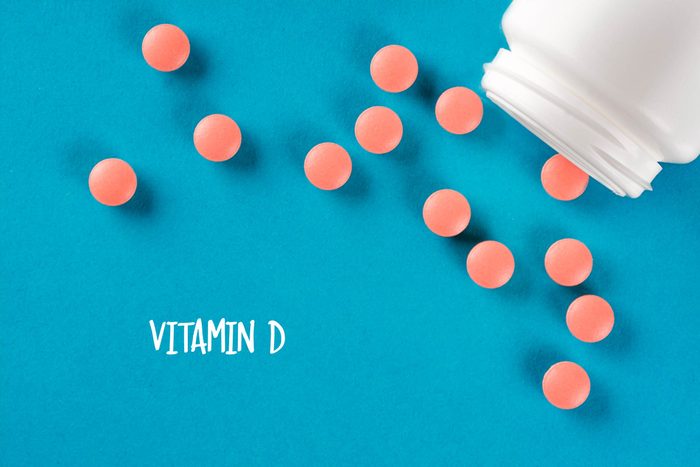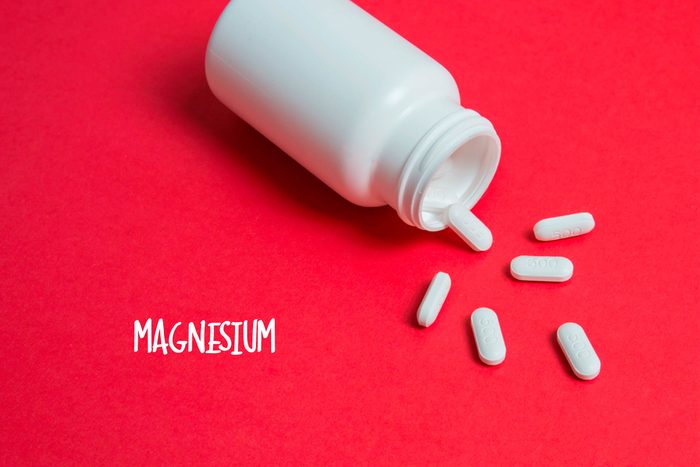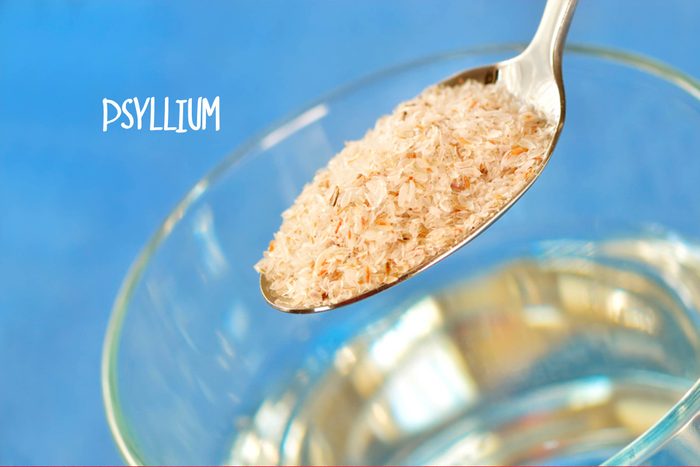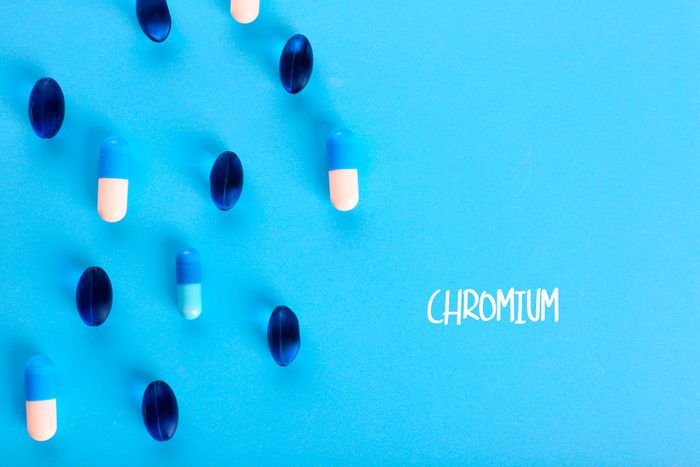
Should I take supplements for diabetes?
From cinnamon and magnesium to herbal formulas claiming to smack down high blood sugar, “diabetes-friendly” supplements and vitamins are popping up in health food stores and drugstores and in the medicine cabinets of more and more people with diabetes. The big question: Should you take supplements for diabetes?
“People with diabetes may be looking for something that seems less potent than a medication or something that will treat other health issues beyond blood sugar control, such as high cholesterol,” notes Laura Shane-McWhorter, a doctor of pharmacy and author of the American Diabetes Association’s Guide to Herbs & Nutritional Supplements. But experts are reluctant to recommend supplements to people with diabetes for two important health reasons. First, there’s virtually no research on long-term safety. Second, no blood sugar supplements that control it as effectively as diabetes drugs (in combination with a healthy lifestyle).
“There are no miracle treatments for diabetes,” Shane-McWhorter says. “The most important thing to know if you have diabetes is that no supplement will take care of it for you. Diabetes is a condition that can be well-controlled with a healthy lifestyle plus medication if needed. A supplement can’t replace those.”
And new science is changing the supplement landscape. In consulting the latest research as well as supplement experts for this report on the best-studied and most widely used supplements, we found that some popular pills—chromium, we’re talking about you—aren’t living up to their reputations as supplements for diabetes. Others, such as vitamin D or psyllium, may be more promising. Still, others should be avoided because they make false claims. For instance, although the Food and Drug Administration (FDA) has approved medications for both short-term and long-term weight management as adjuncts to diet, exercise, and behavioral therapy for people with type 2 diabetes (as noted in the American Diabetes Association’s 2019 Standards of Medical Care in Diabetes), over-the-counter supplements that promote weight loss tend to be a red flag. (Here’s what you can eat to lose weight safely with diabetes.)
And yet, when used safely, certain supplements might help you step up your blood sugar control a notch or two or lower your risk for cardiovascular disease, the most common and life-threatening diabetes complication. Here, the supplements for diabetes you should consider adding to (and dropping from) your treatment plan. (Try these healthy habits to prevent diabetes.)

Consider this: Vitamin D
Is there a link between vitamin D supplements and blood sugar control? In a study published in 2019 in The New England Journal of Medicine, Tufts Medical Center researchers found that taking vitamin D supplements does not prevent the development of type 2 diabetes in most people at high risk for the disease. As for people who already have diabetes, “low vitamin D has been associated with poor control in early research, but we don’t know yet if taking more helps,” says Oluwaranti Akiyode, a doctor of pharmacy and associate professor in the department of clinical and administrative pharmacy sciences at Howard University. “Still, there are good reasons to get enough D, including preventing brittle bones.”
The verdict: A daily supplement is recommended by the Institute of Medicine (600 to 800 IU of D daily). Since one in three Americans may be low on D, and it’s tough getting enough from food, starting a supplement may be smart. But Akiyode suggests first getting a blood test of your vitamin D levels. If you’re deficient in vitamin D, you may need more than a drugstore tablet to top off your tank. “Your doctor may prescribe a high-dose supplement for a while or just suggest an over-the-counter D supplement from the drugstore. Then have your levels rechecked in a few months.”

Consider this: Omega-3s
The good fats found in fish oil capsules (as well as in algal oil, supplements made from algae) and fish like salmon, trout, herring, and sardines have long been touted as heart-healthy. That’s important for people with diabetes, who are at high risk for cardiovascular disease. Omega-3s may reduce inflammation, decrease off-rhythm heartbeats, and discourage artery-clogging. In one review of studies published in 2017 in Lipids Health Disease, taking fish oil supplements improved insulin sensitivity in people with metabolic disorders such as diabetes. A more recent study in JAMA Cardiology, though, finds no benefit for preventing cardiovascular disease in people who are at high risk. (Watch out for these silent signs of diabetes.)
The verdict: The American Heart Association (AHA) recommends that most people get their omega-3s from two or more weekly servings of fish. If you’re not a fish fan, aim for about 2,200 mg weekly of EPA and DHA (the two types of omega-3s) from supplements. People with heart disease should go for 1,000 mg of EPA and DHA daily from fish or a supplement, the AHA recommends.

Consider this: Magnesium
One in four people with type 2 diabetes may be low in magnesium. High blood sugar and diuretic drugs (which many with diabetes take for high blood pressure) can make your body excrete too much; low levels may affect your ability to use insulin. However, there’s little evidence that getting more than the recommended amounts has extra blood sugar benefits. And too much magnesium can be harmful.
The verdict: Your doctor should check levels before you start a magnesium supplement. Don’t take extra on your own. “If you have kidney damage, which is fairly common in diabetes, your magnesium levels may already be too high,” Shane-McWhorter says. “Excess magnesium may cause low blood pressure and an irregular heartbeat.” A multivitamin with about 100 mg of magnesium, plus several servings of whole grains and green vegetables, may supply all you need. The recommended dietary allowances for magnesium are 400 to 420 mg a day for men; and 310 to 320 mg for women.

Consider this: Psyllium
Known for improving regularity and lowering cholesterol, psyllium supplements contain soluble fiber that slows the natural rise in blood sugar after a meal—making it one of the better supplements for diabetes. “If you aren’t getting enough fiber from your diet, then adding psyllium could be beneficial,” Shane-McWhorter notes.
The verdict: Aim for about 10 grams of soluble fiber a day—the amount in three teaspoons of powdered psyllium. After eight weeks of supplementing with psyllium, people with type 2 diabetes had lower after-meal blood sugar levels, according to a study published in 2016 in Nutrition Journal. Mix one teaspoon in eight ounces of water, and sip 20 to 30 minutes before each meal. Start with smaller doses and work your way up gradually to avoid digestive system discomfort or gas.

Consider this: Cinnamon
Despite numerous studies, researchers aren’t sure if cinnamon helps lower blood sugar in people with diabetes. Some studies have shown a benefit from the spice. Others haven’t.
The verdict: Cinnamon might be worth a try. Aim for 500 mg of cinnamon extract twice daily in capsule form, or one half to about one teaspoon of ground cinnamon daily. Cinnamon alone may not help you reach a healthy A1C goal of less than 7 percent but could help along with other diabetes medications, says Evan Sisson, doctor of pharmacy and professor in the department of pharmacotherapy and outcomes science at Virginia Commonwealth University, in Richmond, Virginia. Steer clear of cinnamon if you have liver damage.

Consider this: Alpha-lipoic acid
If you’re coping with pain in fingers, toes, or feet due to diabetes-related nerve damage (diabetic neuropathy), an antioxidant supplement called alpha-lipoic acid (ALA) might help by making nerves less sensitive to pain. It’s possible that ALA may neutralize elevated levels of cell-damaging free radicals that accompany high blood sugar. And one study published in 2015 in the Canadian Journal of Physiology and Pharmacology suggests that ALA helps both in the prevention and in the treatment of diabetes.
The verdict: Maybe. “Stabbing, burning pain may respond better than ongoing tingling,” Shane-McWhorter says. “And ALA may help more with early nerve damage than with more advanced problems.” The dose used in studies is 600 mg daily. You can also get small amounts of this compound from spinach, broccoli, tomatoes, peas, Brussels sprouts, and rice bran. Take care of your feet with these recommended slippers for men with diabetes.

Skip this: Fenugreek
Several small studies, including one published in 2017 in the journal Ayu, suggest that fenugreek, an ancient medicinal herb, may reduce blood glucose levels in people with type 2 diabetes.
The verdict: If fenugreek helps, benefits are small, and side effects—like gas, diarrhea, and interactions with blood-thinning drugs—may outweigh them. “Most of the benefit comes from its dietary fiber,” Shane-McWhorter says, which you can get from foods such as whole grains, nuts, beans, and seeds or psyllium. If you want to try it, stick to using seeds in your diet as opposed to supplements. Grind them to use in tea or to mix into baked goods. (Find out if your hair can benefit from fenugreek seeds.)

Skip this: Chromium
Thanks to 30 years of studies suggesting it may help control blood sugar, chromium is popular among people with type 2 diabetes. Trouble is, studies show chromium supplements improve blood sugar in those with diabetes living in areas where deficiencies are common. That’s not in the United States, where long-term studies haven’t turned up benefits.
The verdict: Save your money. “Almost everyone can get enough from whole grains, broccoli, green beans, mushrooms, and other produce,” says registered dietitian Constance Brown-Riggs, national spokesperson for the Academy of Nutrition and Dietetics and the author of The African American Guide to Living Well with Diabetes. “I don’t routinely recommend a chromium supplement unless there is a known deficiency.” High levels can harm the kidneys and liver and cause mood disturbances. (A safe daily intake is 50 to 200 micrograms.) Also, chromium can interfere with medications, including antacids, beta-blockers, and nonsteroidal anti-inflammatory drugs. (These diabetes myths could be sabotaging your health.)

Skip this: Bitter melon
A popular fruit in the cuisines of Africa, East Asia, India, and South America, bitter melon is also sold in capsules claiming to maintain healthy blood sugar levels. One study published in 2017 in Evidence-based Complementary and Alternative Medicine suggests that bitter melon may reduce high blood glucose in type 1 diabetes, but the evidence is otherwise limited for real blood sugar benefits in people, according to the National Institutes of Health’s National Center for Complementary and Integrative Health.
The verdict: “It’s fine to eat bitter melon as a food, but as a supplement, it hasn’t delivered the expected benefits and is potentially dangerous,” Shane-McWhorter says. “For example, it may cause gastrointestinal discomfort or allergic reactions.” Now that you know about these vitamins for people with diabetes, read up on these diabetes breakthroughs.
